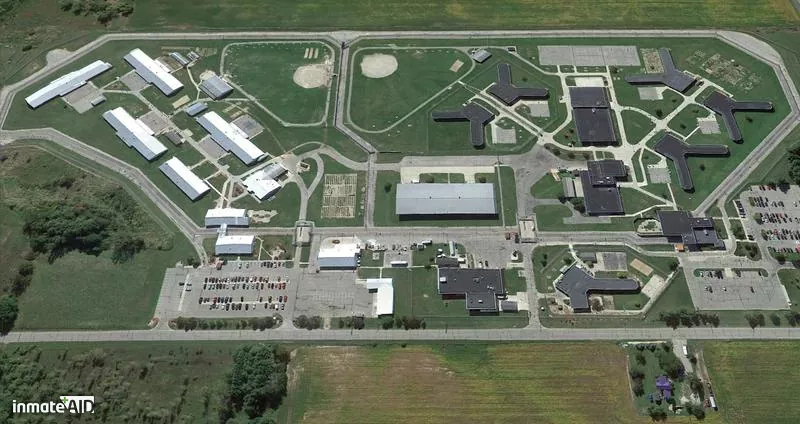Thank you for trying AMP!
You got lucky! We have no ad to show to you!
Connect with an Inmate
MI DOC - Carson City Correctional Facility (DRF)
State Prison
Carson City Correctional is for State Prison offenders sentenced anywhere from one year to life by the State Court in the county where the charges were filed
All prisons and jails have Security or Custody levels depending on the inmate’s classification, sentence, and criminal history. Please review the rules and regulations for State - medium facility.
The phone carrier is Global Tel Link (GTL) - ConnectNetwork, to see their rates and best-calling plans for your inmate to call you.
If you are unsure of your inmate's location, you can search and locate your inmate by typing in their last name, first name or first initial, and/or the offender ID number to get their accurate information immediately Registered Offenders
You can support your loved ones at Carson City Correctional on InmateAid, if you have any immediate questions contact the facility directly at 989-584-3941.
Located at 10274 Boyer Rd in Carson City, MI, Carson City Correctional carefully assigns inmates based on their custody level, considering factors like criminal history. Carson City Correctional offers diverse educational and vocational programs aimed at equipping offenders for successful reintegration into society and reducing recidivism. Through these initiatives, inmates gain skills and confidence, fostering personal growth and resilience.
When someone you care about ends up in a state prison, it can be tough to navigate the ins and outs of the system. From figuring out how to stay in touch to understanding what you can do to make their time easier, it can feel overwhelming. That's where this webpage comes in handy. It's here to help you get the lowdown on MI DOC - Carson City Correctional Facility (DRF) so you can stay connected and support your loved one during their time inside.
Communication is important, the prison offers a phone program for outbound calls only, with inmates unable to receive incoming calls. Accepting collect calls can be expensive, sometimes exceeding $10 per call. Click here for discounts on inmate calls, especially if the communication with your inmate is frequent. It's important to remember that all phone calls are recorded, and discussing sensitive legal matters over these lines is discouraged.
While incarcerated, reading is often the best use of time. Please note that books and magazines, puzzles, and word searches ordered for inmates must come directly from the publisher. This policy ensures that the items are new, untampered, and comply with the facility's regulations. Prisons and jails enforce this rule to prevent the introduction of contraband or prohibited materials. By restricting orders to publishers, the facility can better maintain security and control over the content entering the institution. Any books or magazines not received directly from the publisher will be rejected and not delivered to the inmate. You may, however, send letters and selfies to inmates with this easy-to-use app, packages starting at only $8.00.
CCCF operates as a multi-level institution, comprising 15 housing units and accommodating up to 2,526 adult prisoners. Segregated into DRF-West and DRF-East, the facility offers a spectrum of housing options tailored to the diverse needs and security levels of its inmate population. DRF-West encompasses units ranging from unsecured Level I to secured Level IV, while DRF-East comprises eight Secure Level I units, each designed to accommodate 160 prisoners in open bay setups.
In 1997, recognizing the imperative of enhancing security measures, Carson City Correctional Facility took a significant step forward with the installation of two gun towers. These towering sentinels, erected within the facility's perimeter, symbolize the unwavering commitment to ensuring the safety and well-being of both staff and inmates. With their implementation, the facility bolstered its security infrastructure, fortifying its defenses against potential threats.
The consolidation of Boyer Road Correctional Facility into Carson City Correctional Facility on August 9, 2009, marked a pivotal moment in its history. This amalgamation not only expanded the facility's capacity but also solidified its position as a cornerstone of Michigan's correctional system. It underscored the facility's pivotal role in accommodating and managing the state's inmate population, further amplifying its significance within the broader framework of corrections.
At its core, Carson City CF is designed to house and rehabilitate adult male prisoners under the purview of the Michigan Department of Corrections. The facility comprises seven distinct housing units, each meticulously tailored to accommodate inmates of varying security classifications. Among these units, a dedicated 120-bed facility caters specifically to Level I prisoners, offering a structured environment conducive to their rehabilitation and reintegration. Meanwhile, Level II and Level IV prisoners are housed in units equipped with a total of 720 and 384 beds, respectively, ensuring adequate accommodation for diverse inmate populations. Additionally, a specialized housing unit with 22 beds serves as a segregation facility, providing a secure environment for the management of high-risk inmates.
Security lies at the heart of CCCF's operations, underpinning its mandate to maintain order and safety within its walls. The facility boasts a robust security apparatus, comprising double fences lined with razor-ribbon wire encircling its perimeter. Complementing these physical barriers are two imposing gun towers, positioned strategically to oversee the facility's surroundings and deter potential security breaches. Furthermore, electronic detection systems and patrol vehicles are deployed vigilantly, augmenting perimeter security and ensuring swift response to any emergent threats.
Religious services, overseen by the facility's Chaplain, cater to the spiritual well-being of inmates, fostering a supportive environment for religious expression and exploration. Mental health services are likewise prioritized, with outpatient treatment, peer support initiatives, and specialized units dedicated to addressing mental health disorders and behavioral issues. On-site dental and medical services ensure access to essential healthcare, with additional support available through referrals to external facilities for emergencies and specialized treatments.









